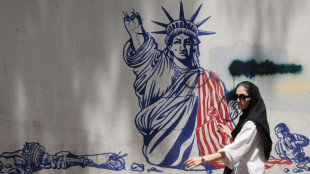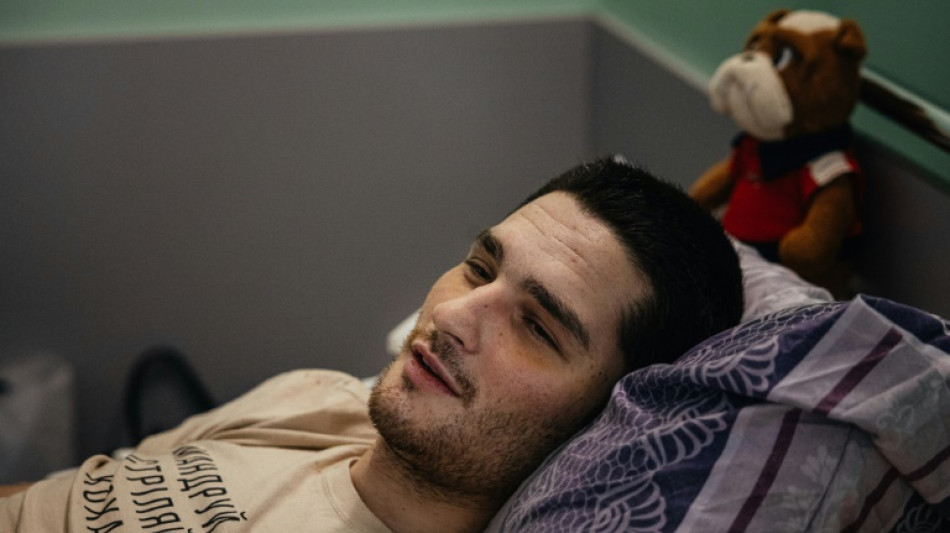
-
 Disasters loom over South Asia with forecast of a hotter, wetter monsoon
Disasters loom over South Asia with forecast of a hotter, wetter monsoon
-
Chinese woman detained over BTS Jungkook attempted break-in
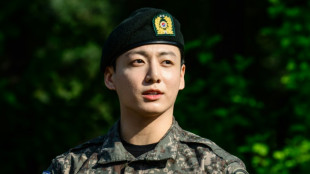
-
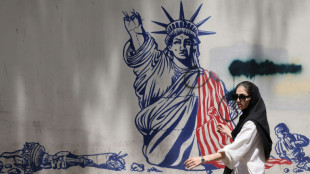 Oman to host US-Iran nuclear talks on Sunday
Oman to host US-Iran nuclear talks on Sunday
-
UK economy shrinks in April as US tariffs kick in
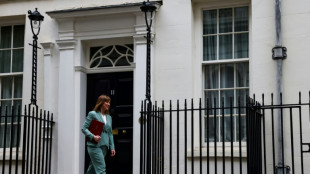
-
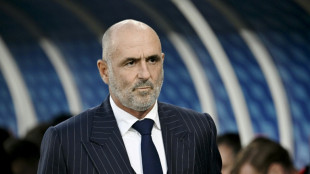 Poland coach quits after Lewandowski boycott and World Cup qualifier loss
Poland coach quits after Lewandowski boycott and World Cup qualifier loss
-
Israel says Hamas 'weaponising suffering in Gaza' as aid workers killed
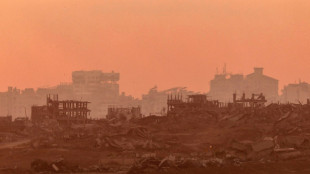
-
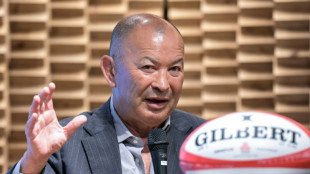 Jones tells Japan to run wounded Wales 'off their feet' in the heat
Jones tells Japan to run wounded Wales 'off their feet' in the heat
-
Shares stumble after Trump's latest trade threat
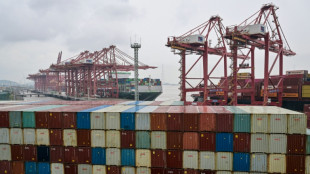
-
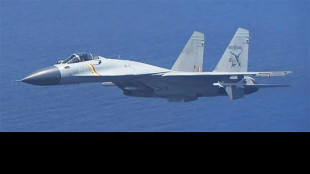 Japan, China trade barbs over fighter jet manoeuvres
Japan, China trade barbs over fighter jet manoeuvres
-
122 million forcibly displaced worldwide 'untenably high': UN
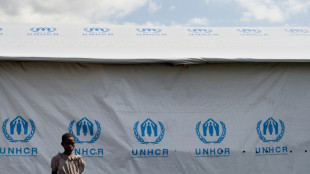
-
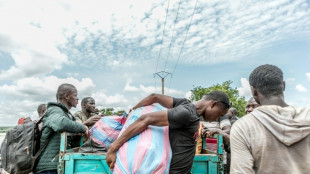 Niger-Benin border standoff deepens as trade collapse bites
Niger-Benin border standoff deepens as trade collapse bites
-
Ethiopia's vast lake being pumped dry

-
 EU crypto regulation hampered by national flaws
EU crypto regulation hampered by national flaws
-
Nairobi startup's bid to be 'operating system for global South'

-
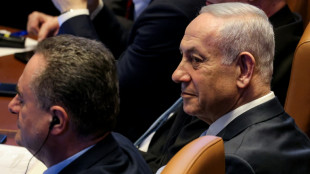 Netanyahu survives opposition bid to dissolve parliament
Netanyahu survives opposition bid to dissolve parliament
-
US-backed Gaza Humanitarian Foundation says 5 members killed in Hamas attack
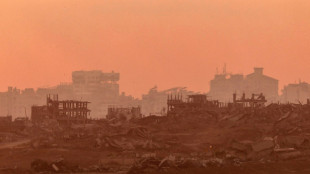
-
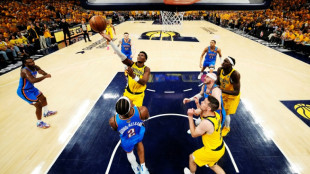 Resilient Mathurin stars in Pacers win
Resilient Mathurin stars in Pacers win
-
Scheffler chases back-to-back majors at US Open
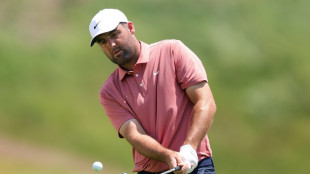
-
 Australian mushroom murder suspect denies intent to kill
Australian mushroom murder suspect denies intent to kill
-
Pacers bounce back to down Thunder to take 2-1 NBA Finals lead
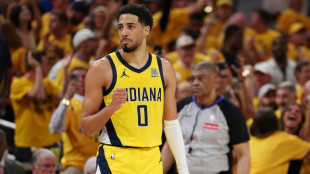
-
 Trump unveils website for $5 million US residency visa
Trump unveils website for $5 million US residency visa
-
Australia 'confident' in US nuclear sub deal despite review
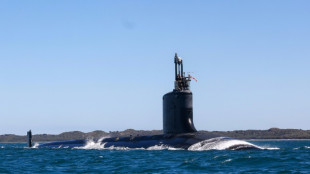
-
 Ferrari target 'magnificent' third straight Le Mans 24 Hour triumph
Ferrari target 'magnificent' third straight Le Mans 24 Hour triumph
-
Verstappen seeks record fourth Canada win and trouble-free weekend
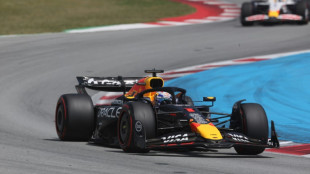
-
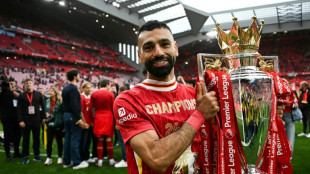 Five of the stars missing at the Club World Cup
Five of the stars missing at the Club World Cup
-
Alonso's new-look Real Madrid aiming for Club World Cup glory

-
 Pacers bounce back to down Thunder for 2-1 NBA Finals lead
Pacers bounce back to down Thunder for 2-1 NBA Finals lead
-
PSG's Lee pleads with S. Korea boo boys to back team at World Cup

-
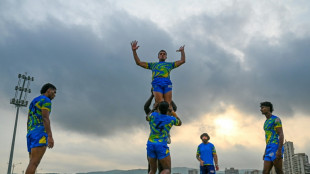 India's rugby sevens venture tries to convert Olympic dreams to reality
India's rugby sevens venture tries to convert Olympic dreams to reality
-
Rice prices Japan's hot political issue, on and off the farm
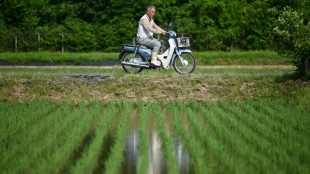
-
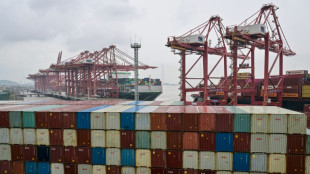 Asian shares stumble after Trump's latest trade threat
Asian shares stumble after Trump's latest trade threat
-
From fishing family to Big Tech: French CEO takes on Silicon Valley

-
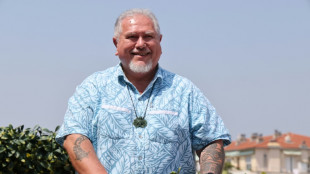 Value oceans, don't plunder them, French Polynesia leader tells AFP
Value oceans, don't plunder them, French Polynesia leader tells AFP
-
'Our city is not on fire': LA residents reject Trump rhetoric
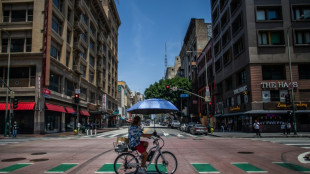
-
 In a Ukrainian strip club, the war is laid bare
In a Ukrainian strip club, the war is laid bare
-
London museum opens vast 'on-demand' storehouse to public

-
 Trump cheered, jeered at 'Les Miserables' debut in Washington
Trump cheered, jeered at 'Les Miserables' debut in Washington
-
LA stars react to Trump's migrant crackdown
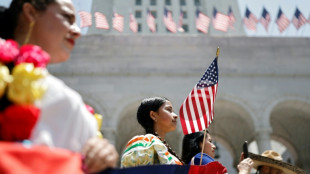
-
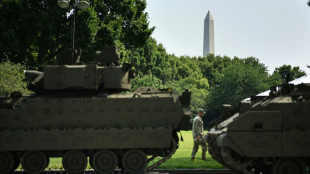 Trump to flex muscle with huge military parade
Trump to flex muscle with huge military parade
-
'Terrifying': Migrants fret over LA raids, but still look for work
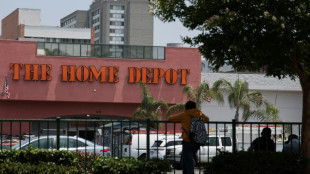
-
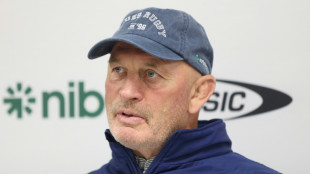 Blues out to end Crusaders home dominance in Super Rugby semis
Blues out to end Crusaders home dominance in Super Rugby semis
-
Bolivia policemen killed in clashes with Morales backers
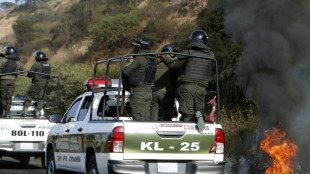
-
 Brazil court majority favors tougher social media rules
Brazil court majority favors tougher social media rules
-
Canada's McIntosh breaks 400m medley world record

-
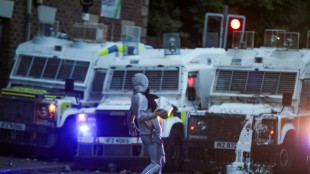 Third night of anti-immigrant violence hits Northern Ireland town
Third night of anti-immigrant violence hits Northern Ireland town
-
Israel to expel French nationals on Gaza aid boat by end of week

-
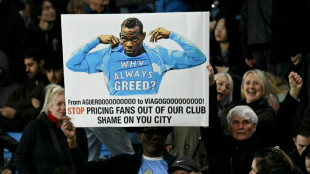 Premier League 'under strain' despite record £6.3 bn revenues
Premier League 'under strain' despite record £6.3 bn revenues
-
Stillwater Critical Minerals Announces Brokered Offering for Gross Proceeds of up to C$6 Million

-
 As Federal Protections for State Medical Marijuana Collapse - MMJ International Holdings Stands Alone on Legal Ground
As Federal Protections for State Medical Marijuana Collapse - MMJ International Holdings Stands Alone on Legal Ground
-
Trump watches 'Les Miserables', tale of revolt and oppression


Ukraine soldier's ordeal offers view into prisoner swaps
Ukrainian soldier Glib Stryzhko's mother knew he'd fallen into Russian hands but it wasn't until her gravely wounded 25-year-old son made a secret phone call to her that she found out where he was.
"One of his guards took pity on him," she told AFP.
That small mercy, as well as details of his experience -- including a tormentor's knife and a painfully long kilometre -- offer a window into the dramatic but often obscured reality of war prisoner exchanges.
Nearly killed in intense fighting in the key port city of Mariupol, Stryzhko was captured in April and eventually taken to Russia before suddenly being put on a plane and sent towards home with others to be swapped for Russian prisoners.
"After we were loaded onto the bus waiting for us, the driver said: 'Guys, you can breathe. You are home now,'" Stryzhko said from his hospital bed in the southeastern city of Zaporizhzhia.
"Then I started to cry very hard."
Getting to that point took just weeks, a remarkably short timeline among war captives, whose fates have always been part of an emotional, high-stakes and sometimes political process that can go on long after the shooting has stopped.
In Ukraine's case, over 350 of its troops have been freed so far in swaps, which happen on a one-for-one basis between people of the same rank, Deputy Prime Minister Iryna Vereshchuk told AFP.
Stryzhko's twisting route home started on social media. A comrade happened to spot him on a Telegram channel where pro-Russian separatists in Ukraine post images of captured enemy soldiers.
The comrade called Stryzhko's mother, who was horrified to hear the news but somehow hopeful now she knew her son was alive.
"This man had our phone number. Glib had given it to him, as if he was expecting this to happen," his mother Lesia Kostenko, 51, told AFP. "That was when we started to look."
Her son was posted at the Ilych steelworks in the thick of the battle for Mariupol. That conflict attracted global attention because of the civilians trapped in another steel plant, Azovstal.
- Russian denials -
Stryzhko was hit by a tank shell and buried under rubble on April 10 before his unit got him to a hospital, where he said he was taken prisoner.
Now recovering from massive injuries to his pelvis, jaw and one eye, Stryzhko explained how his captors shuttled him and other prisoners around, first to Novoazovsk, near the Russian border.
"We were lying there in the hospital and we weren't receiving any serious treatment," he said.
He was there for about a week before being moved to a hospital in Donetsk, where, incredibly, he ended up getting access to a phone and called home.
"During the first call he told us where he was," his mother said.
Word of the call spread to other families of POWs and they started asking her to see if Stryzhko knew anything about their captive loved ones. He didn't.
The family also lobbied the government for help getting Stryzhko back, including the deputy prime minister.
"His relatives contacted me and asked my help as a minister -- his mother, his brother, his friends. They were all looking for him," Vereshchuk said.
The minister said she pressured the Russians to exchange Stryzhko but they refused to admit he was in their custody until she confronted them with the knowledge he was in Donetsk Hospital 15.
"After that they were forced to hand him over," Vereshchuk said.
After about a week in Donetsk, Stryzhko said the Russians were moving him yet again. This time it was to prison, he was told.
There followed more painful movement and jostling. He was carried in a blanket, then laid on the floor of a bus, but in the end it seemed he was too seriously injured to be out of hospital.
He would be moved again.
"I stayed in the bus for some time. Then they put me in an ambulance and the next stop was the Russian border," Stryzhko said. He was told they were headed for Taganrog, about an hour's drive from Ukraine.
- 'Crying, again' -
When Stryzhko talked about his experience with his captors, a thread emerged of both indifference and a certain cruelty.
He said the doctors mostly did their medical duties but there was a nurse who cursed him in Russian and left meals by his bedside, knowing he couldn't feed himself.
"Then the nurse came back and said 'You're all done, then?' and took the food away," he said.
He was constantly under guard in hospital, yet the guards themselves could be terrifying.
He recounted how one ran a knife along his skin but never plunged it in, issuing the chilling threat: 'I would love to cut off your ear or to cut you like Ukrainians cut our prisoners'."
What Stryzhko didn't know but would shortly learn was that his time in Russia would be brief.
The ambulance taking him to Taganrog was in fact heading to an airport. Within hours he was in the air, with other wounded people and captives whose hands were tied and whose eyes were covered with duct tape.
Once on the ground in Crimea he learned they would be exchanged. It was April 28.
The Russians drove him and three other gravely injured Ukrainians to the undisclosed site of the exchange. The two sides were about a kilometre (roughly half a mile) apart.
"When we passed that one kilometre I was so scared because who knows what can happen? They may cancel the whole thing," Stryzhko said. But soon he was aboard a Ukrainian bus and in tears.
His mother had an idea this was coming but no details, until Vereshchuk called with the news.
"I dropped my phone. And started crying again," she said.
P.Silva--AMWN
